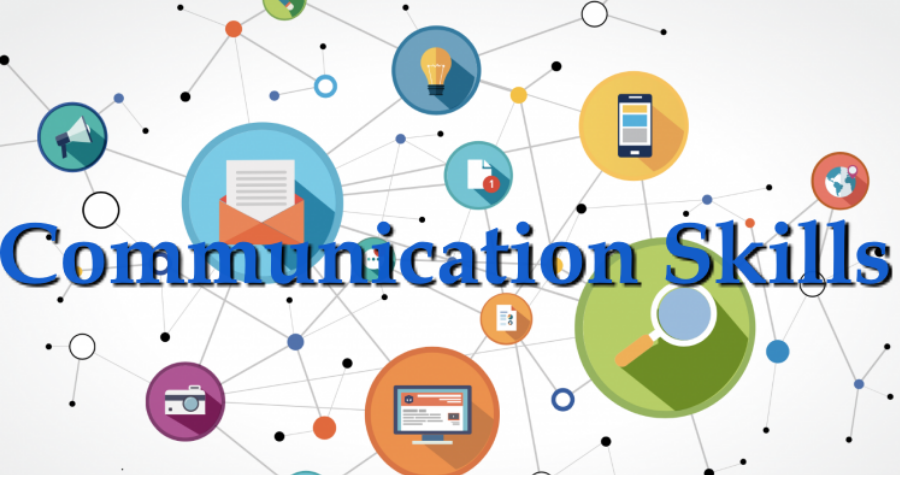Effective management is the cornerstone of any successful organization. Managers play an important role in leading teams, making strategic decisions and achieving business goals. But what makes a truly effective leader? The answer lies in mastering the key skills that are essential in any leadership role.
In this article, we will explore four key leadership skills that every leader needs to succeed: technical skills, people skills, conceptual skills, and decision-making skills. All these skills contribute to a manager’s ability to lead his team, solve problems and contribute to the success of the organization. By understanding and developing these skills, leaders can improve their effectiveness and positively influence their teams and organizations. Whether you’re a new manager or an experienced manager, understanding these key skills can help you succeed in your leadership role.
Definition of Managerial Skills
Managerial skills encompass the abilities and competencies that enable individuals to oversee and coordinate resources, people, and processes within an organization. These skills are essential for individuals occupying managerial roles, ranging from team leaders to executives, as they are responsible for driving organizational success.
Importance of Managerial Skills in Effective Leadership
Effective leadership hinges on the mastery of managerial skills. Managers who possess strong communication, leadership, time management, and decision-making abilities are better equipped to inspire their teams, make informed decisions, allocate resources efficiently, and adapt to dynamic business environments. Without these foundational skills, leadership effectiveness may be compromised, leading to decreased productivity and morale within the organization.
Communication Skills

Importance of Effective Communication in Management
Communication lies at the heart of successful management. Clear and effective communication fosters understanding, collaboration, and alignment among team members and stakeholders. Managers who excel in communication can convey expectations, provide feedback, resolve conflicts, and inspire trust, thereby enhancing team performance and driving organizational success.
Types of Communication Skills
Verbal Communication: Verbal communication involves the use of spoken words to convey messages. It encompasses skills such as active listening, articulation, clarity, and empathy. Verbal communication is essential for conducting meetings, delivering presentations, and engaging in one-on-one interactions with team members and stakeholders.
Non-Verbal Communication: Non-verbal communication encompasses gestures, facial expressions, body language, and tone of voice. It plays a significant role in conveying emotions, intentions, and attitudes, often complementing verbal communication to enhance understanding and credibility.
Written Communication: Written communication involves the transmission of messages through written mediums such as emails, reports, memos, and documentation. Effective written communication requires clarity, conciseness, coherence, and attention to detail, ensuring that information is conveyed accurately and comprehensively.
Courses Available for Improving Communication Skills
“Effective Communication Skills” – Coursera This course offers comprehensive training in verbal, non-verbal, and written communication skills. Participants learn strategies for enhancing clarity, empathy, and persuasion in various communication contexts.
“Business Communication” – edX Designed for professionals seeking to improve their business communication skills, this course covers topics such as professional writing, presentation skills, and interpersonal communication techniques.
“Communication Skills for Managers” – LinkedIn Learning Geared towards managers and leaders, this course provides practical insights and strategies for mastering communication in a managerial context. Participants learn how to communicate effectively with diverse stakeholders, resolve conflicts, and foster a positive work culture.
“The art of communication is the language of leadership.” – James Humes
Link – Communication Skills
Leadership Skills

Definition of Leadership Skills
Leadership skills encompass the abilities and qualities that enable individuals to inspire, influence, and guide others towards common goals. Effective leaders exhibit a blend of vision, empathy, integrity, and resilience, empowering their teams to achieve excellence and adapt to change.
Importance of Leadership Skills in Managerial Roles
Leadership skills are essential for managers as they navigate complex challenges, inspire team members, and drive organizational growth. Managers who demonstrate strong leadership capabilities can foster innovation, build cohesive teams, and cultivate a culture of trust and accountability within their organizations.
Types of Leadership Skills
Visionary Leadership: Visionary leadership involves the ability to articulate a compelling vision for the future and inspire others to share in that vision. Visionary leaders possess foresight, creativity, and strategic thinking, guiding their teams towards ambitious goals and navigating uncertainties with confidence.
Strategic Thinking: Strategic thinking entails the capacity to analyze complex situations, identify opportunities, and develop long-term plans to achieve organizational objectives. Strategic leaders leverage data, market insights, and industry trends to make informed decisions and position their organizations for success.
Decision-Making: Decision-making is a fundamental leadership skill that involves evaluating options, weighing risks and benefits, and choosing courses of action that align with organizational goals and values. Effective decision-makers exhibit sound judgment, critical thinking, and adaptability, enabling them to navigate ambiguity and make timely, well-informed decisions.
Courses Available for Developing Leadership Skills
“Leadership: Practical Leadership Skills” – Udemy This course provides practical strategies and techniques for developing essential leadership skills, including communication, motivation, conflict resolution, and decision-making. Participants learn how to inspire and empower their teams to achieve shared objectives.
“Strategic Leadership and Management” – FutureLearn Designed for aspiring leaders and senior managers, this course explores the principles of strategic leadership and management. Participants gain insights into strategic planning, organizational change, and effective decision-making in dynamic business environments.
“Decision-Making and Problem-Solving Strategies” – Skillshare Focused on enhancing decision-making skills, this course offers practical frameworks and tools for analyzing problems, generating solutions, and making effective decisions. Participants learn how to assess risks, consider alternatives, and implement decisions with confidence.
“Leadership is not about being in charge. It’s about taking care of those in your charge.” – Simon Sinek
Link – Leadership Skill
Time Management Skills

Definition of Time Management Skills
Time management skills refer to the ability to prioritize tasks, allocate resources efficiently, and optimize productivity within specified time constraints. Effective time management enables individuals to balance competing priorities, meet deadlines, and achieve desired outcomes with minimal stress and effort.
Importance of Time Management for Managers
Time management is critical for managers who must juggle multiple responsibilities, oversee projects, and meet organizational objectives within limited time frames. Managers who excel in time management can optimize their workflows, minimize procrastination, and focus their efforts on high-impact activities that drive results.
Techniques for Effective Time Management
Prioritization: Prioritization involves identifying tasks and activities based on their urgency and importance. Effective prioritization allows managers to focus their time and energy on tasks that contribute most significantly to organizational goals while delegating or deferring less critical tasks as needed.
Setting Goals: Setting SMART (Specific, Measurable, Achievable, Relevant, Time-bound) goals provides managers with clear objectives to work towards and helps them stay focused and motivated. By breaking down larger goals into smaller, actionable steps, managers can track progress and adjust their plans as necessary to stay on target.
Delegation: Delegation involves assigning tasks and responsibilities to team members based on their skills, expertise, and availability. Effective delegation frees up managers’ time to focus on strategic activities while empowering team members to develop their skills, take ownership of projects, and contribute to organizational success.
Courses Available for Enhancing Time Management Skills
“Time Management Fundamentals” – LinkedIn Learning This course offers practical techniques and strategies for mastering time management, including goal setting, task prioritization, and effective delegation. Participants learn how to identify time wasters, overcome procrastination, and optimize their productivity.
“Mastering Time Management” – Udacity Geared towards busy professionals, this course provides actionable insights and tools for maximizing productivity and minimizing time-related stress. Participants learn how to create efficient workflows, leverage technology for time management, and maintain work-life balance.
Link – Time Management Skills
Decision-Making Skills

Decision-making skills refer to the ability to evaluate options, weigh alternatives, and make choices that align with organizational goals and objectives. It involves a systematic process of gathering information, analyzing data, assessing risks, and considering various factors to arrive at a well-informed decision. Effective decision-makers exhibit critical thinking, sound judgment, and the ability to navigate complex situations with confidence and clarity.
Importance of Effective Decision-Making in Management
Effective decision-making is essential for managers as they navigate the complexities of the business environment and guide their teams towards success. The ability to make timely and informed decisions can have a significant impact on organizational performance, productivity, and profitability. Managers who excel in decision-making can seize opportunities, mitigate risks, and adapt to changing circumstances, thereby enhancing the competitive advantage of their organizations.
Factors Influencing Decision-Making
Data Analysis: Data analysis plays a crucial role in decision-making by providing managers with valuable insights and information to support their choices. By analyzing quantitative and qualitative data, managers can identify patterns, trends, and correlations that inform strategic decisions. Data-driven decision-making enables managers to make evidence-based choices, minimize uncertainty, and optimize outcomes.
Risk Assessment: Risk assessment involves evaluating the potential risks and uncertainties associated with different courses of action. Effective decision-makers assess the likelihood and impact of various risks, consider mitigation strategies, and weigh the potential rewards against potential losses. By conducting thorough risk assessments, managers can make informed decisions that balance risk and reward and minimize negative consequences for the organization.
Ethical Considerations: Ethical considerations are fundamental to decision-making, as managers must consider the moral and ethical implications of their choices. Ethical decision-making involves evaluating the consequences of actions on stakeholders, adhering to legal and regulatory standards, and upholding principles of integrity and fairness. Managers who prioritize ethical considerations in their decision-making process build trust, credibility, and reputation both internally and externally.
Courses Available for Honing Decision-Making Skills
“Data-Driven Decision Making” – Coursera: This course provides participants with the knowledge and skills to leverage data for effective decision-making. Topics covered include data analysis techniques, statistical methods, and practical applications in business decision-making. Participants learn how to interpret data, identify trends, and make informed decisions based on quantitative insights.
“Critical Thinking and Problem Solving” – edX: Focused on developing critical thinking skills, this course equips participants with the tools and techniques to analyze complex problems and make sound decisions. Participants learn how to evaluate evidence, identify assumptions, and consider alternative perspectives to arrive at well-reasoned conclusions. The course emphasizes practical problem-solving strategies applicable to real-world managerial challenges.
Link – Decision-making Skills
Also Read: How to Crack a Coding Interview?
Conclusion
In conclusion, the four essential managerial skills—communication, leadership, time management, and decision-making—are foundational pillars that underpin effective management. Mastery of these skills is critical for managers to navigate the complexities of the modern business landscape, inspire their teams, and drive organizational success.
Effective communication serves as the cornerstone of managerial effectiveness, enabling managers to convey ideas, foster collaboration, and build strong relationships with stakeholders. Leadership skills empower managers to motivate, inspire, and guide their teams towards achieving shared goals, while time management skills enable them to prioritize tasks, allocate resources efficiently, and optimize productivity. Additionally, sound decision-making skills are essential for managers to evaluate options, mitigate risks, and make informed choices that align with organizational objectives.
Through continuous learning, practice, and development, managers can enhance their proficiency in these essential skills and become more effective leaders in their respective roles. By investing in training programs, seeking mentorship, and leveraging available resources, managers can sharpen their communication, leadership, time management, and decision-making abilities, ultimately driving organizational growth and success.
FAQ
Q: Why are communication skills important for managers?
Communication skills are essential for managers to effectively convey ideas, provide feedback, resolve conflicts, and inspire their teams. Strong communication fosters understanding, collaboration, and alignment among team members and stakeholders, ultimately driving organizational success.
Q: What leadership skills are crucial for managerial roles?
Crucial leadership skills for managerial roles include visionary leadership, strategic thinking, and decision-making. Visionary leaders articulate a compelling vision for the future, strategic thinkers develop long-term plans to achieve organizational objectives, and effective decision-makers make informed choices that align with organizational goals.
Q: How can managers improve their time management skills?
Managers can improve their time management skills by prioritizing tasks, setting goals, and delegating responsibilities effectively. Additionally, leveraging tools and techniques for task organization, scheduling, and productivity tracking can help managers optimize their workflows and maximize their efficiency.
Q: Why is decision-making important in management?
Decision-making is important in management because it enables managers to evaluate options, weigh risks and benefits, and make choices that align with organizational goals. Effective decision-making drives innovation, mitigates challenges, and facilitates progress towards achieving desired outcomes.




